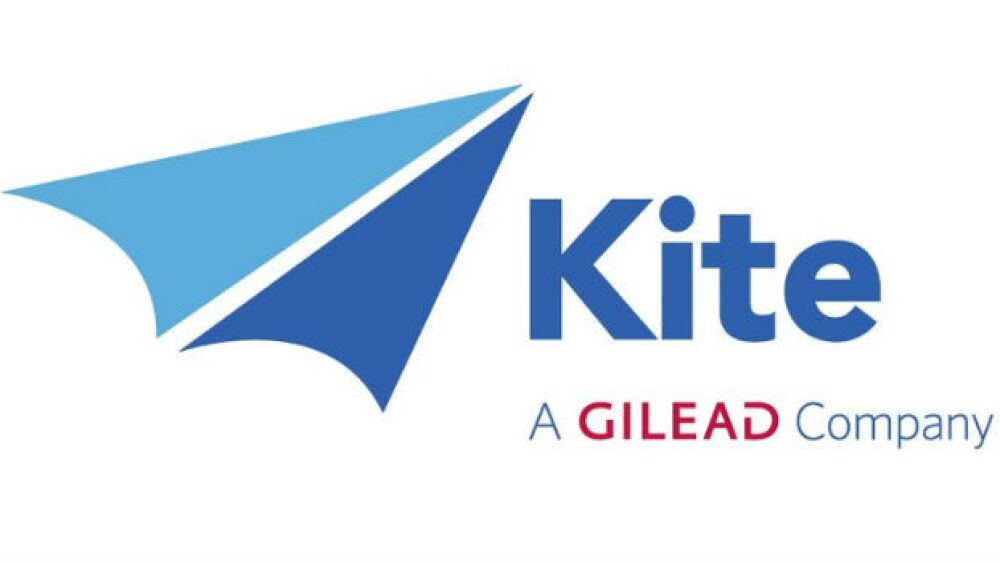Kite, a Gilead Company, has inked a worldwide collaboration deal with Sangamo Therapeutics to develop oncology therapeutics.
Kite, a Gilead Company, inked a worldwide collaboration deal with Sangamo Therapeutics to develop oncology therapeutics.
The companies will utilize Sangamo’s zinc finger nuclease (ZFN) technology platform to develop next-generation ex vivo cell therapies for cancer. Gilead is paying Sangamo $150 million upfront. Sangamo is eligible for up to $3.01 billion in potential payments across 10 or more products. Those payments include various research, development, regulatory and commercialization milestones. Sangamo will also be eligible for tiered royalties on future products.
“This collaboration between Kite and Sangamo brings together two leading platforms to develop best-in-class cell therapies in oncology,” said Sandy Macrae, Sangamo’s president and chief executive officer, in a statement. “We are excited by Kite’s commitment to driving innovation in this field and look forward to working together to realize the full promise of cell therapy in treating cancer.”
Sangamo’s engineered zinc finger proteins are a powerful type of gene editing. It can be used to specifically knock out a gene or add new DNA sequences into precise locations. The company’s technology, ZFP transcription factors (ZFP TFs) can control gene expression as well.
Sangamo stock rose 9.46 percent at the news. They were on a roll anyway, having gained 500 percent in the last 12 months, compared to the S&P 500 SPX, which has gained 14 percent in the same period. Gilead Sciences, Inc. shares also increased slightly in premarket trading, and have risen about 17 percent in the last 12 months.
Sangamo also released its fourth-quarter financials today. In addition to the new deal with Kite and Gilead, it noted a second collaboration and license deal with Pfizer Inc. to supply its ZFP-TF platform for potential gene therapies for C9ORF72-linked amyotrophic lateral sclerosis (ALS) and frontotemporal lobar degeneration (FTLD).
Total revenue for 2017 was $36.6 million, up from $19.4 million in 2016. Total operating expenses were $92.9 million, up slightly from 2016’s figure of $92.9 million. The company reported cash, cash equivalents, marketable securities and interest receivable of $244.560 million at the end of 2017, up from $142.759 million.
“With two collaboration announcements since the beginning of the year, 2018 is off to a brisk start,” said Macrae in a statement. “This year we continue the important work of laying the foundation for Sangamo as a sustainable, fully integrated company that develops, manufactures and commercializes novel genomic therapies on our own and, where appropriate, in collaboration with industry partners. We now have five active clinical programs, with additional preclinical assets advancing toward IND. Perhaps most importantly, we expect to begin reporting data by mid-year from our most advanced clinical trials, SB-525 for hemophilia A and SB-913 for MPS II.”
Although CRISPR/Cas9 gets most of the media attention for gene editing, Sangamo’s approach, as demonstrated by Pfizer and Gilead’s interest, is gaining traction. John Milligan, Gilead’s president and chief executive officer, said in a statement, “The emergence of gene editing as a tool to edit immune cells holds promise in the development of therapies with potentially improved safety, efficacy and efficiency. We believe Sangamo’s zinc finger nucleases provide the optimal gene editing platform, and we look forward to working with Sangamo to accelerate our efforts to develop next-generation autologous cell therapies, as well as allogeneic treatments that can be accessed more conveniently in the hospital setting for people living with cancer.”





